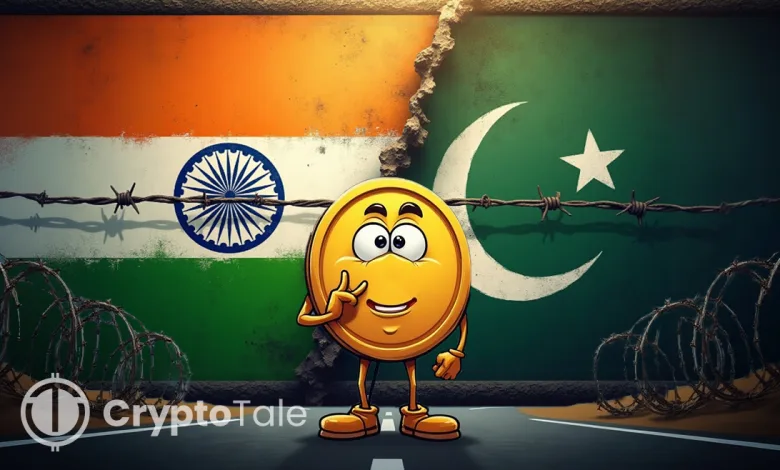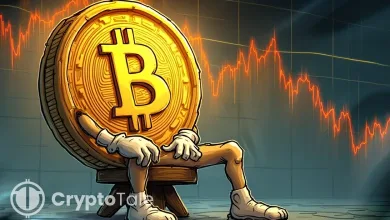India-Pakistan Tensions: Will It Impact the Crypto Market?

- Shortly after Trump’s announcement about the India-Pakistan ceasefire, a loud explosion happened in Srinagar, India.
- Amidst the military conflicts, the stock markets of both nations experienced volatility.
- Will this war involving the fourth-largest economy have an impact on the digital asset market?
The worst military confrontation prevailed for four days between the two nuclear-armed enemies, India and Pakistan. India announced “Operation Sindoor,” hitting nine sites in Pakistan and Pakistan-controlled Kashmir that it described as “terrorist infrastructure”. On May 10, on the Truth Social platform, Trump announced the ceasefire, calling it a win for both nations. But a shocking statement came from Omar Abdullah, the chief minister of J&K, after watching the loud explosions at Srinagar, India on Saturday night. After the two countries accused one another of “violations” mere hours after an agreement was made, it appears that the ceasefire between India and Pakistan lasted overnight into Sunday.
Ceasefire Confirmation and Peace Efforts
Pakistan’s Deputy Prime Minister Ishaq Dar confirmed the ceasefire, stating that his country is striving for peace and declaring its determination to safeguard its sovereignty when necessary. India’s external affairs minister, S. Jaishankar, also confirmed the end of military activities and the renewed Indian stand against terrorism.
The stock markets have been highly volatile due to the recent military moves. Following airstrikes by the Indian military forces in Pakistan, on 7th May, the Indian stock markets opened 0.59% lower at 24.23,3, which later recovered to a 24,414 level. On the flip side, the Pakistan stock market slipped by 5%.
The Impact On the Crypto Market and Crypto Regulation
Although the stock market experienced volatility, the crypto sector remained resilient after the announcement. Geopolitical uncertainties can sometimes lead to the fluctuation of the price of cryptocurrencies. When the Russia–Ukraine war happened in 2023, a decline in the price of cryptocurrencies was observed. Yet, Bitcoin and other cryptocurrencies appear as a secure investment for certain people, while others invest to reduce risks.
Despite the ceasefire, digital assets keep soaring as these two nations have shown little progress in framing crypto laws. Global crypto regulations have been stressed during India’s tenure as the G20 president. The Finance Minister, Nirmala Sitharaman, has tried to encourage global standards in crypto transactions. She noted the need for a clear-cut and transparent deal for transferring digital assets, which involves tracking money flows and acquiring a clear description of everyone involved.
Related: Bitcoin Jumps After Trump-UK Deal and BoE Rate Cut: Report
At the same time, Pakistan has taken a new step toward cryptocurrencies. After a cautious pause, the government is turning towards introducing regulatory measures. In March 2025, the Pakistan Crypto Council (PCC) was established to develop regulatory frameworks for digital assets. The change reflects an increased readiness to adopt blockchain technology and digital asset adoption nationally.
While the regulations are on the rivalry, the recent war has affected the stock market of the two nations. But crypto markets haven’t seen any major fluctuation as these nations aren’t involved in crypto like the US. Neither India nor Pakistan has enacted any solid regulations on cryptocurrency. As a result, the crypto industry continues to operate without being impacted by ongoing geopolitical tensions and the India-Pakistan ceasefire.




